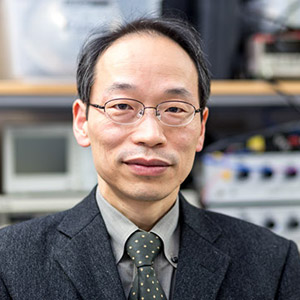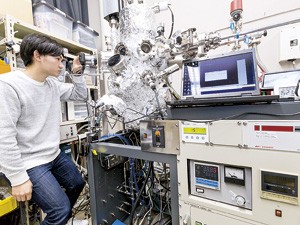
-

Chemistry
-

Mechanical / Aviation
-

Physics
-

Metal
KAMADA Yasuhiro Professor
Course
-
Faculty
Materials Science
-
Master's Program
Materials Science and Engineering
-
Doctoral Program
Fundamental and Applied Sciences
Degrees Obtained
- Doctorate (Engineering) Field of degree: Material Engineering
Fields of Research
- Physical metallurgy
- Nondestructive evaluation
- Magnetic thin-film
Profile
- March 1997: Completed Quantum Engineering Doctoral Program, Graduate School of Engineering and School of Engineering, Nagoya University
- April 1997 - March 2001: Assistant, Division of Materials and Manufacturing Science, Graduate School of Engineering, Osaka University
- April 2001 - March 2007: Assistant Professor, Non Destructive Evaluation and Science Research Center, Faculty of Engineering, Iwate University
- April 2007 - March 2011: Associate Professor (title change), Non Destructive Evaluation and Science Research Center, Faculty of Engineering, Iwate University
- April 2011 - February 2012: Associate Professor, Department of Materials Science and Engineering (organizational changes), Faculty of Engineering, Iwate University
- March 2012 – March 2016: Professor, Department of Materials Science and Engineering, Faculty of Engineering, Iwate University
- April 2016 - Present: Professor, Department of Physical Science and Materials Engineering, Faculty of Science and Engineering (organizational changes), Iwate University
Research Themes
The research of new non-destructive deterioration diagnosis methods and quality inspection methods for metal materials
As the social infrastructure of power plants, etc. continues to age, maintenance efforts to ensure that they remain safe are important. To that end, it is necessary to develop non-destructive diagnostic methods that do not damage the structures. Atomic arrangements in metals fall out of alignment (lattice defects), advancing deterioration. I research new non-destructive deterioration diagnosis methods using ultrasonic waves and magnets that are sensitive to lattice defects. This technology can also be applied to the non-destructive quality inspection of various metal products, such as automobiles.

Teaching Philosophy
I educate students to develop flexible thinking and problem-solving skills through the fields of material science and material engineering, and to apply these to society with an ability to contribute to the creation and development of innovations in science and technology.


